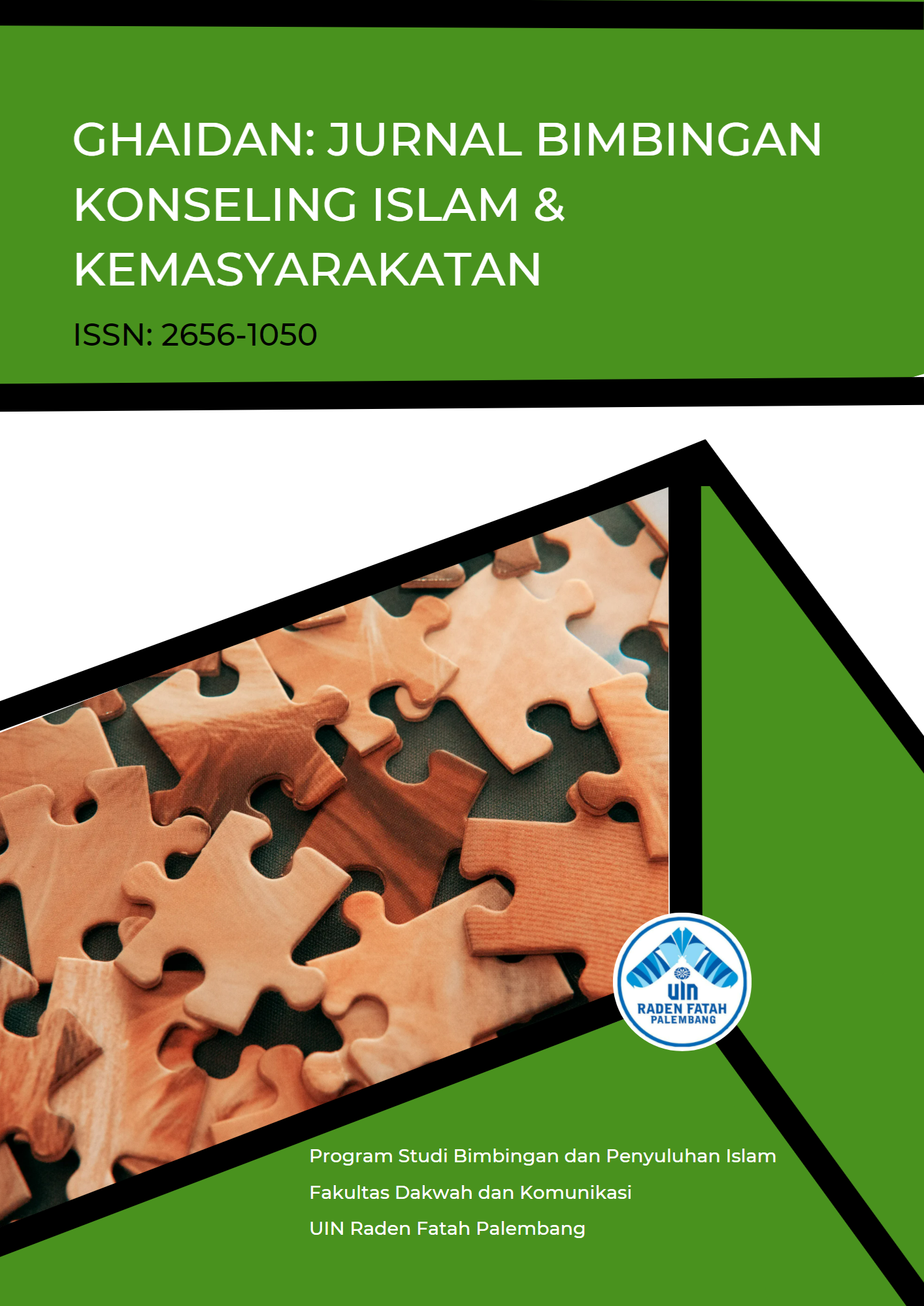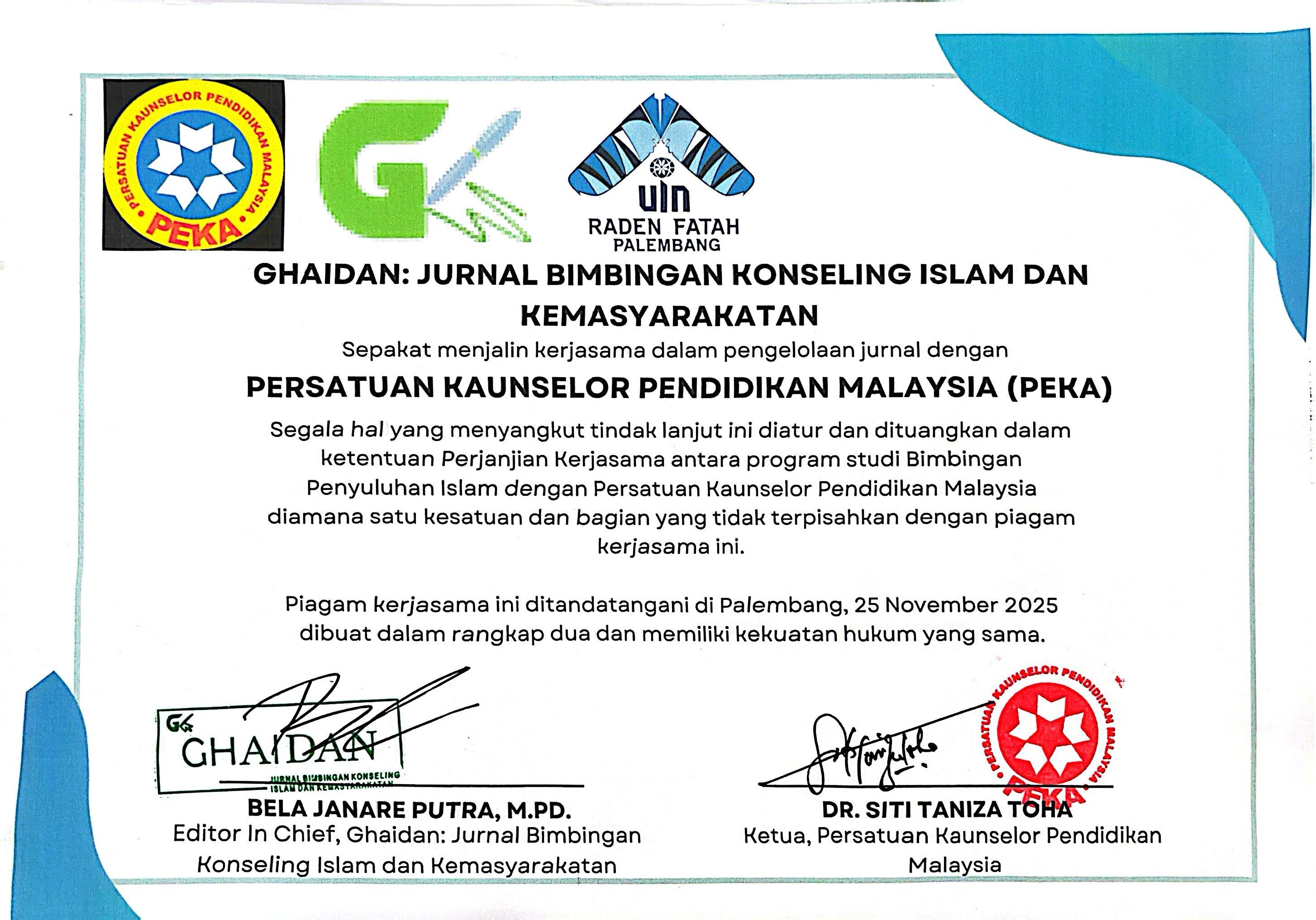Hubungan antara Intensitas Penggunaan Media Sosial dengan Prokrastinasi Siswa SMA Negeri Suku Banjar
DOI:
https://doi.org/10.19109/h5y12d76Abstract
This research examines the relationship between the intensity of social media use and procrastination among high school students of the Banjar tribe. In today’s digital era, technology and information have become essential parts of everyday life, including in the education sector. Many schools now allow students to use cellphones for specific subjects to enhance learning. However, the easy access to social media through these devices can lead to procrastination, especially when students choose to spend time on social media rather than completing their academic tasks. This study utilizes descriptive and correlational methods to explore this relationship. The analysis reveals a correlation coefficient of 0.386, with a significance level of p = 0.000, indicating a positive and significant relationship between the intensity of social media use and procrastination. This means that as the intensity of social media usage increases, so does the likelihood of procrastination. These findings highlight the impact of social media on students’ academic performance and the importance of managing technology use in schools to avoid negative effects on time management and productivity.
References
Anggi, E. (2012). Hubungan antara intensitas menonton sinetron televisi terhadap perilaku imitasi gaya hidup artis pada remaja. Universitas Islam Indonesia.
Ariyati, I. (2023). Exploring the Relationship Between Public Stigma, Self-Stigma, and Counselling Help-Seeking Intentions Among Adolescents in Madrasah. COUNS-EDU: The International Journal of Counseling and Education, 8(3). https://doi.org/10.23916/0020230845330
Ariyati, I., & Aisyah, N. (2022). Pengembangan Materi Bimbingan dan Konseling Klasikal Bidang Belajar di Sekolah Menengah Pertama. Bulletin of Counseling and Psychotherapy, 4(1), 187-194. https://doi.org/10.51214/bocp.v4i2.154
Bustanul Karim, Ika Ariyati, & Eka Prasetiawati. (2023). Akun Instagram Lambe Turah sebagai Media Informasi dan Bisnis Perspektif Teori Industri dan Ayat Muamalah. Bulletin of Indonesian Islamic Studies, 2(1), 55-68. https://doi.org/10.51214/biis.v2i1.502
Chaplin, J. P. (2008). Kamus lengkap psikologi. Raja Grafindo Persada.
Ghufron, M. N., & Risnawati, S. (2010). Teori-teori psikologi. Ruzz Media.
Gramedia. (2024). Pengertian media sosial. Gramedia.com. https://www.gramedia.com/literasi/pengertian-media-sosial/. (Accessed January 17, 2024).
Hazim Nurkholif. (2005). Teknologi pembelajaran (5th ed.). Erlangga.
Heiriyah, A., & Tohari, S. (2023). Hubungan antara self control dan self esteem dengan prokrastinasi akademik siswa suku Banjar di MAN 1 Banjarmasin. Jurnal Consulenza: Jurnal Bimbingan Konseling dan Psikologi, 6(2), 248–258. https://doi.org/10.56013/jcbkp.v6i2.2347
Ibrahim, A. R., Rohaeti, E. E., & Suherman, M. M. (2020). Gambaran penggunaan sosial media pada siswa sekolah menengah atas. Jurnal Fokus, 3(5), September 2020.
Kusuma, L. W. A. (2010). Kecenderungan perilaku prokrastinasi akademik pada mahasiswa fakultas psikologi Universitas Sanata Dharma Yogyakarta (Undergraduate thesis). Universitas Sanata Dharma, Yogyakarta.
Kushendar, K., Ariyati, I., & Mayra, Z. (2021). The Role of Counseling Guidance in Early Childhood Education and Their Emotional Development. Journal of Childhood Development, 1(2), 97–101. https://doi.org/10.25217/jcd.v1i2.1826
Mustakim. (2015). Hubungan antara locus of control dengan prokrastinasi akademik pada siswa MAN 1 Medan (Undergraduate thesis). Universitas Medan.
Puntoadi, D. (2011). Menciptakan penjualan melalui social media. Elex Komputindo.
Rubin, J. Z. (1985). Loneliness, parasocial interaction, and local television news viewing. Human Communication Research, 12(6), 155–180. http://www.citeseerx.ist.psu.edu. (Accessed May 18, 2019).
Sabekti, R. (2019). Hubungan intensitas penggunaan media sosial (jejaring sosial) dengan kecenderungan narsisme dan aktualisasi diri remaja akhir (Undergraduate thesis). Universitas Airlangga, Surabaya.
Salsabiela, A., Atieq, B., Husna, A. A., Utami, A. N., Qurrotaa’yun, N. N., & Qudsyi, H. (2018). TRASI (training motivasi) untuk menurunkan prokrastinasi akademik siswa siswi MTS (Madrasah Tsanawiyah). Persona: Jurnal Psikologi Indonesia, 7(2), 177–186.
Sa’diyah, H., Suhono, S., Pratiwi, W., Kushendar, K., & Sugiarto, S. (2023). Improving Speaking Skills of Santri through Drilling Technique and Cinema Therapy in Group Counseling of Bakmin Program. Ghaidan: Jurnal Bimbingan Konseling Islam Dan Kemasyarakatan, 7(1), 65-74. https://doi.org/10.19109/ghaidan.v7i1.17827
Sari, A. I. (2023). Hubungan self-efficacy dengan prokrastinasi siswa di SMP Negeri 5 Kota Jambi (Undergraduate thesis). Universitas Jambi.
Sugiarto. (2023). IQ Intelligence Level Analysis of Prospective Elementary School Students as a Condition for Readiness to Learn at School. Journal of Childhood Development, 3(2), 98–108. https://doi.org/10.25217/jcd.v3i2.3873
Suryani, Afrinaldi, Syam, H., & Kamal, M. (2024). Hubungan intensitas penggunaan sosial media dengan prokrastinasi akademik siswa MTsN 2 Bukittinggi. Jurnal Soshumdik, 3(1), 1–5. https://doi.org/10.56444/soshumdik.v3i1.1382
Downloads
Published
Issue
Section
License
Copyright (c) 2024 Aminah Aminah, Endang Pratiwi Pratiwi, Elisa Futri Futri, Awalia Awalia

This work is licensed under a Creative Commons Attribution-ShareAlike 4.0 International License.





